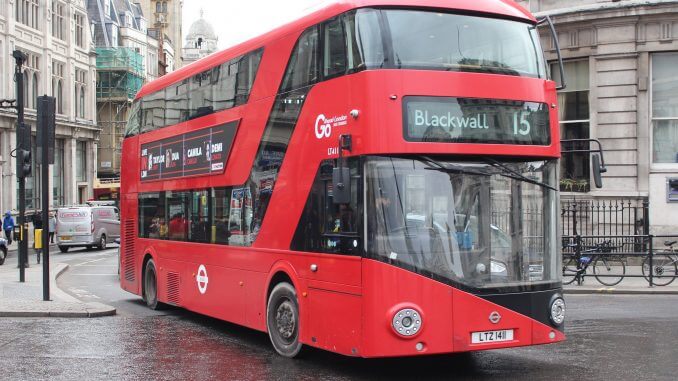
Transport for London (TfL) published its draft budget for 2018/19 on Monday, highlighting planned improvements to the capital’s transport network in the first year of a five year ‘Business Plan’.
Published in December of 2017, the plan set out how the Mayor’s Transport Strategy would be delivered; it included investing record amounts in public transport and an ‘unprecedented’ focus on walking and cycling in an attempt to combat air pollution.
TfL says that the proposals outlined in the draft budget will help it to reduce Government funding by an average of £700m per year.
Prior to Monday’s budget, TfL cut costs by reducing management layers, merging functions, renegotiating contracts and improving the efficiency of its transport improvements; in the previous financial year, it saved a record £153m.
The transport body expects this trend to continue, with like-for-like costs falling and total operating costs £200m better than the previous year’s budget – offsetting the impact of external factors.
The 2018/19 budget looks ahead to 2021/22; TfL expects to continue on its current spending trajectory, leading to a budget surplus by this point.
Following the removal of the Government grant, TfL will work without Government support for the first time in its history.
TfL and the Mayor of London, Sadiq Khan, are calling on the Government to apply a link between ‘roads tax’ and roads funding which, TfL says, would allow them to “continue modernising London’s road network, as well as support more walking and cycling journeys”.
From 2021, the £500m raised each year through London motorists’ Vehicle Excise Duty will be given to central Government to invest in roads outside the capital.
TfL expect to deliver a range of improvements to the city during 2018/19, including creating ‘the greenest bus fleet in the world’.
According to TfL, over 1,000 diesel buses will be retrofitted with Selective Catalytic Converters, making over half of the diesel fleet Euro 6 compliant by the end of 2018/19.
Four further Low Emission Bus Zone routes are also planned to be introduced at some of the capital’s pollution hotspots.
Mike Brown MVO, London’s Transport Commissioner, said: “This budget sets out what we will deliver in the next year as part of the Mayor’s Transport Strategy as we work to achieve his vision for 80 per cent of journeys to be made by walking, cycling and public transport by 2041.
“We will continue with our massive programme of investment in the transport network, modernising and boosting capacity, delivering healthier safer streets and providing affordable and accessible transport that will support London’s economic growth.
“This will be achieved alongside our extensive savings programme which is reducing our day to day costs, while protecting frontline services, as we manage a £700m per year reduction in Government subsidy.
“This will put us well on the way to generating an operating surplus for the first time in our history in 2021/22.”
Deputy Mayor for Transport, Val Shawcross, added: “The next year will be a truly exciting time for London, with the opening of the Elizabeth line, and major projects like the transformation of Oxford Street.
“At the same time, today’s budget shows how we’re also looking to the future with further tube modernisation and an unprecedented commitment to walking and cycling infrastructure. “Through our major programme of TfL efficiencies, I’m proud that despite the removal of our Government grant, we’re both freezing TfL fares and building a world-class transport network that will improve quality of life for Londoners all across our city.”

